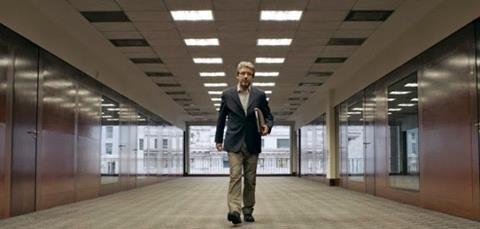Dir/scr: Damian Szifron. Argentina-Spain. 2014, 122mins

Argentina’s Damian Szifron drives Wild Tales (Relatos Salvajes) hard across its six separate episodes – his one-man portmanteau of innovative and increasingly scathing social comedy is brilliantly conceived and confidently delivered.
Throughout, Wild Tales is never predicable. Its tales of the unexpected have twists and turns, but they’re always innovative, and the music choices are unexpectedly left-field and pulpishly entertaining.
It’s hard to maintain the creative wit on display across the first three episodes (Pasternak, The Rats, and Road To Hell). And these six unrelated stories of roughly 20 minutes duration do occasionally struggle for air, particularly towards the fourth and fifth segments as the film’s tone grows more suffocating.
But there is no doubt that this Wild Tales an accomplished comedy that aims high and delivers. It is gleefully imaginative in conception and also in execution - the desert dust of Tarantino-esque third installment The Road to Hell seems drifts over the whole film, making its classic Western themes more overt. In each strand, somebody is mad, and they just aren’t going to take it any more. As the murderous jailbird cook in Episode two, The Rats, played by Rita Cortese, says: “Everyone wants the bastards to get what they deserve, but nobody wants to lift a finger.”
She, however, has no such compunctions, and neither do her colleagues in Wild Tales, who all burst through repression and corruption to unleash their inner outraged beast. Wild Tales is funny - very funny in parts - but its off-kilter comedy has more of a touch of Spain’s Alex de la Iglesias than, say, Almodovar, whose El Deseo co-produced (the opening short, Pasternak, is set on an airplane, immediately calls to mind last year’s I’m So Excited).
Szifron’s last film, Tiempo de Valientes (2005), was a conventional buddy-comedy about a depressed cop. Wild Tales is a far more accomplished affair. Each film strikes its own tone, and maintains its own identity, yet the film gels as a whole. Its Cannes Competition berth and warm reviews should see Wild Tales at least secure festival play, and there’s enough in here to secure a shot at the art house. Domestic box office for Warner Bros should be excellent, with Spain and other Latin-speaking territories to follow. SPC’s decision to take Wild Tales on board for North American distribution on the eve of its Cannes bow looks like a smart move.
In opting to shoot a string of thematically-linked but separate short films, Szifron has taken on quite a challenge to sustain momentum, difficult when the action cuts, the scene changes, and new principals are introduced every 20 minutes. But by episode three, however, the director-writer is absolutely on top of his game in Road To Hell, with Leonardo Sbaraglia as a macho Audi driver who gets into the ultimate road rage battle with battered Peugeot driver Walter Donaldo.
So perfectly-timed is this sequence, it creates a problem for Argentina’s biggest star Ricardo Darin who appears in episode No four, Bombita, as a mild-mannered explosives engineer. Darin is effectively provoked by the thievery of the municipal car park authorities into action – with predictably explosive results, if not quite the fireworks of the opening episodes.
Part five, The Bill, operates in a far greyer area morally when a millionaire businessman tries to bribe his son out of the hit and-run in which he killed a pregnant woman and her unborn child. This is the episode that doesn’t operate within such strict moral (or lack of moral) tram lines. Finally, Szifron finishes off Wild Tales with his piece de resistance, Til Death Do Us Part, a wild, wild wedding in which the deceived bride (Erica Rivas) becomes increasingly unhinged. This is a marriage of extremities as Rivas and her groom (Diego Gentile) enter the room to the strains of David Guetta’s Titanium and the frenzy ramps up from there.
Throughout, Wild Tales is never predicable. Its tales of the unexpected have twists and turns, but they’re always innovative, and the music choices are unexpectedly left-field and pulpishly entertaining. Cameraman Javier Julia is himself more unleashed in some episodes, particularly the last. The bride may lose her head as the camera spins around her, but there’s a solid team behind Szifron, notably with Ruth Fischerman’s punchy production design.
Production companies: Kramer & Sigman Films, El Deseo
International sales: Film Factory Entertainment, info@filmfactory.es
Producer: Axel Kuschevatzky
Executive producers: Pola Zito, Leticia Cristi
Cinematography: Javier Julia
Production designer: Clara Notari
Editors: Pablo Barbieri, Damian Szifron
Main cast: Ricardo Darin, Oscar Martinez, Leonardo Sbaraglia, Erica Rivas, Rita Cortese, Julieta Zylberberg, Dario Grandinetti





















